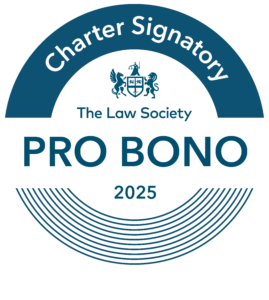How to make a discrimination claim
What is discrimination?
Discrimination claims must be based on evidence that a person has been treated unfairly because of a protected characteristic as set out in the Equality Act. The protected characteristics in the Equality Act are: age, gender reassignment, disability, pregnancy and maternity, race, religion or belief, sex and/or sexual orientation.
Discrimination comes in all shapes and sizes. It can be blatantly obvious and come in the form of a less favourable treatment of a person with the most obvious of protected characteristics such as gender or race. It can be more subtle, although equally unacceptable, such as the creation of intimidating, hostile, degrading, humiliating or offensive surroundings at home, work or other areas of social activity and interaction. Finally, it can be identified in cases involving people who have been put at a significant disadvantage if compared with others who do not share their protected characteristics.
At work, direct discrimination can occur because of someone’s age, perceived age, age of another person they’re associated with or because when a certain restriction, often innocuous, that applies to all employees puts employees of a certain age at a disadvantage. Similarly it can appear because of the employee’s sex, race, religion and other protected characteristic both in a direct way or more subtly, by asking all employees to be available to work full-time which could put female workers with caring responsibilities at a significant disadvantage.
Public sector equality duty
The purpose of the public sector equality duty is to provide a balanced approach to the protection of rights of people with certain characteristics by public bodies. This duty can force public authorities to consider taking positive action to meet these needs or reduce the inequalities. Its role is also to integrate consideration of equality and good relations into the daily activities of public authorities. Their policies, procedures and practices are required to:
- Eliminate unlawful discrimination, harassment and victimisation and other conduct prohibited by the Equality Act 2010.
- Advance equality of opportunity between people who share a protected characteristic and those who do not.
- Foster good relations between people who share a protected characteristic and those who do not.
To implement this duty, public authorities must do the following:
- Remove or minimise disadvantages suffered by people due to their protected characteristics.
- Take steps to meet the needs of people from protected groups where these are different from the needs of other people.
- Encourage people from protected groups to participate in public life or in other activities where their participation is disproportionately low.
of their marriage or civil partnership status. This means that the first aim of the duty applies to this characteristic but that the other aims (advancing equality and fostering good relations) do not apply.
So, what should I do first if I think I have been discriminated?
Gather evidence. Emails and letters could be good sources of useful information to support your claim. Policies, procedures and company manuals/handbooks could contain unacceptable or discriminatory practices. Perhaps you are not alone? Others who share your protected characteristic(s) may feel that they have not been treated fairly which could make your claim more credible.
You must act quickly. The deadline in which to bring a claim is short and any legal action must commence within three months minus one day from the date of the action that is considered discriminatory for discrimination at work claims, and six months less one day from the last date of discrimination in all other matters. In employment discrimination cases, there is no general discretion for the Tribunal to extend time for issuing a claim. However, the time limit can be extended if the Employment Tribunal considers that it is ‘just and equitable’ to extend time. Such extensions are granted infrequently. Similarly, in non-employment cases, the six months deadline can be extended by the court in a limited number of cases with a compelling factual background. Every effort should be made to file and serve the proceedings within the prescribed timeframe.
Other
Legal action is unlikely to be received well by the people accused of discrimination against others. Their behaviour may change for the worse with an openly hostile attitude to their victims. This can manifest in some form of detriment to the victim because this person has been involved or is perceived to be involved in the claim/case. Unfortunately, in most circumstances there is little the victim can do to improve the relationship and every effort should be made to gather as much evidence as possible. The protected acts vary, depending on the circumstances but the victims can enjoy statutory protection if their actions broadly fall within the following:
- they have made a claim or complaint of discrimination under the Equality Act
- they have given evidence or information to help someone else who has made a complaint or a claim under the Act
- they have done anything else which is related to the Act
- they have said that someone has done something unlawful under the Act.
So how much can you claim in compensation?
The award of damages is discretionary. In determining whether an award would be appropriate the courts and tribunal will consider all of the facts of the case including things such as the vulnerability of the claimant, the seriousness and the impact the discriminatory incident and other relevant factors. The amount of damages is based on the decision in Vento v Chief Constable of West Yorkshire Police [2002] EWCA Civ 1871 (generally referred to as Vento guidelines) which provided three bands for injury to feelings in order of severity of the offence.
On 6 April 2020 the Vento bands were increased to the following:
£900 – £9,000 for lower band offences. Lower band offences will be awarded in cases involving one-off incidences of discrimination such as a single discriminatory insult or act that lasted for a brief period of time.
£9,000 – £27,000 for middle band offences. Middle band offences will cover serious cases, which could include a serious one-off incident or less serious breach which continued over a period of time.
£27,000 to £45,000 for upper band offences. Upper band damages apply to the most serious acts of discrimination which result in a profound impact on the victim and may have caused lasting damage or psychological injury (depression, anxiety or extreme distress).
In the most serious cases it is possible for courts and tribunals to award in excess of £45,000.
What to do next?
If you believe you or someone you know has been subject to discrimination, contact us and we’ll be happy to discuss your case with you.









